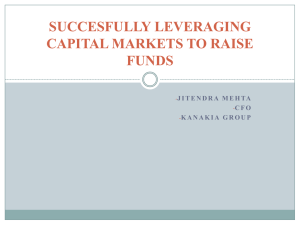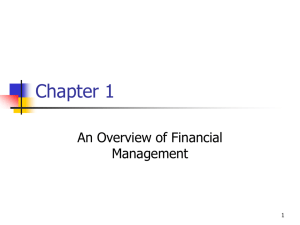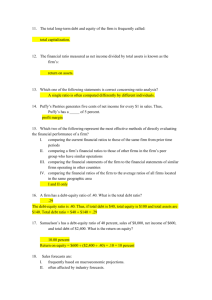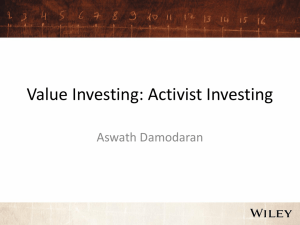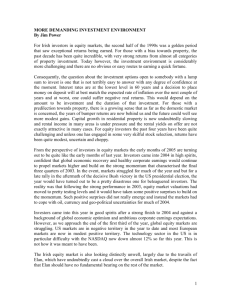proposal for doctoral dissertation scholarship
advertisement
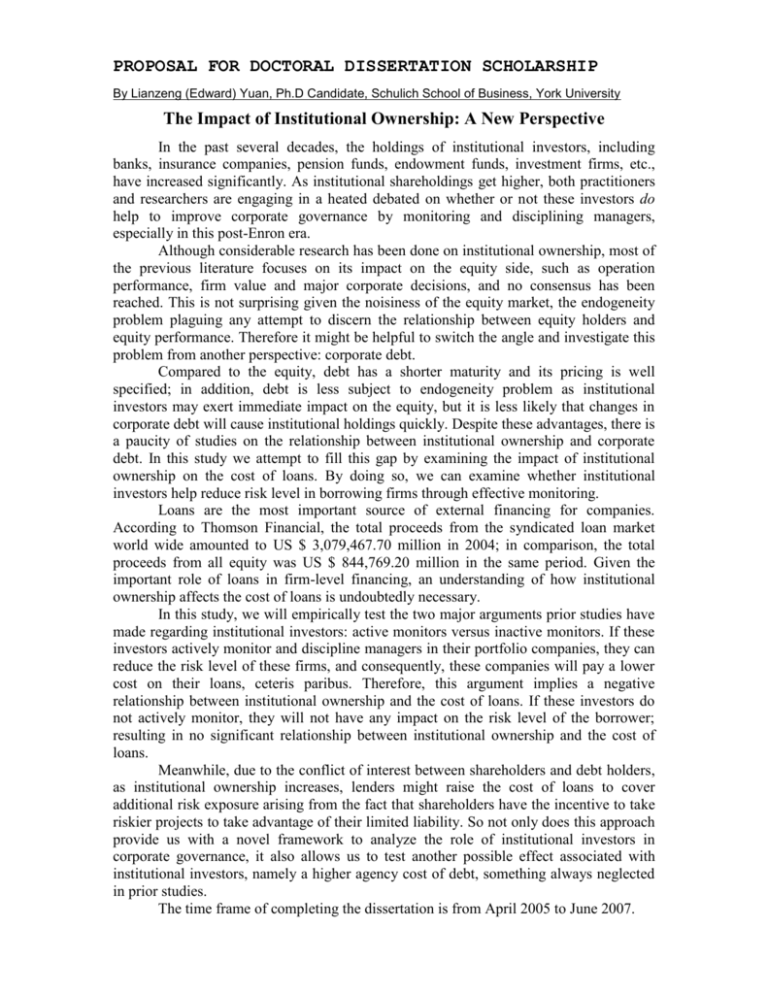
PROPOSAL FOR DOCTORAL DISSERTATION SCHOLARSHIP By Lianzeng (Edward) Yuan, Ph.D Candidate, Schulich School of Business, York University The Impact of Institutional Ownership: A New Perspective In the past several decades, the holdings of institutional investors, including banks, insurance companies, pension funds, endowment funds, investment firms, etc., have increased significantly. As institutional shareholdings get higher, both practitioners and researchers are engaging in a heated debated on whether or not these investors do help to improve corporate governance by monitoring and disciplining managers, especially in this post-Enron era. Although considerable research has been done on institutional ownership, most of the previous literature focuses on its impact on the equity side, such as operation performance, firm value and major corporate decisions, and no consensus has been reached. This is not surprising given the noisiness of the equity market, the endogeneity problem plaguing any attempt to discern the relationship between equity holders and equity performance. Therefore it might be helpful to switch the angle and investigate this problem from another perspective: corporate debt. Compared to the equity, debt has a shorter maturity and its pricing is well specified; in addition, debt is less subject to endogeneity problem as institutional investors may exert immediate impact on the equity, but it is less likely that changes in corporate debt will cause institutional holdings quickly. Despite these advantages, there is a paucity of studies on the relationship between institutional ownership and corporate debt. In this study we attempt to fill this gap by examining the impact of institutional ownership on the cost of loans. By doing so, we can examine whether institutional investors help reduce risk level in borrowing firms through effective monitoring. Loans are the most important source of external financing for companies. According to Thomson Financial, the total proceeds from the syndicated loan market world wide amounted to US $ 3,079,467.70 million in 2004; in comparison, the total proceeds from all equity was US $ 844,769.20 million in the same period. Given the important role of loans in firm-level financing, an understanding of how institutional ownership affects the cost of loans is undoubtedly necessary. In this study, we will empirically test the two major arguments prior studies have made regarding institutional investors: active monitors versus inactive monitors. If these investors actively monitor and discipline managers in their portfolio companies, they can reduce the risk level of these firms, and consequently, these companies will pay a lower cost on their loans, ceteris paribus. Therefore, this argument implies a negative relationship between institutional ownership and the cost of loans. If these investors do not actively monitor, they will not have any impact on the risk level of the borrower; resulting in no significant relationship between institutional ownership and the cost of loans. Meanwhile, due to the conflict of interest between shareholders and debt holders, as institutional ownership increases, lenders might raise the cost of loans to cover additional risk exposure arising from the fact that shareholders have the incentive to take riskier projects to take advantage of their limited liability. So not only does this approach provide us with a novel framework to analyze the role of institutional investors in corporate governance, it also allows us to test another possible effect associated with institutional investors, namely a higher agency cost of debt, something always neglected in prior studies. The time frame of completing the dissertation is from April 2005 to June 2007.

